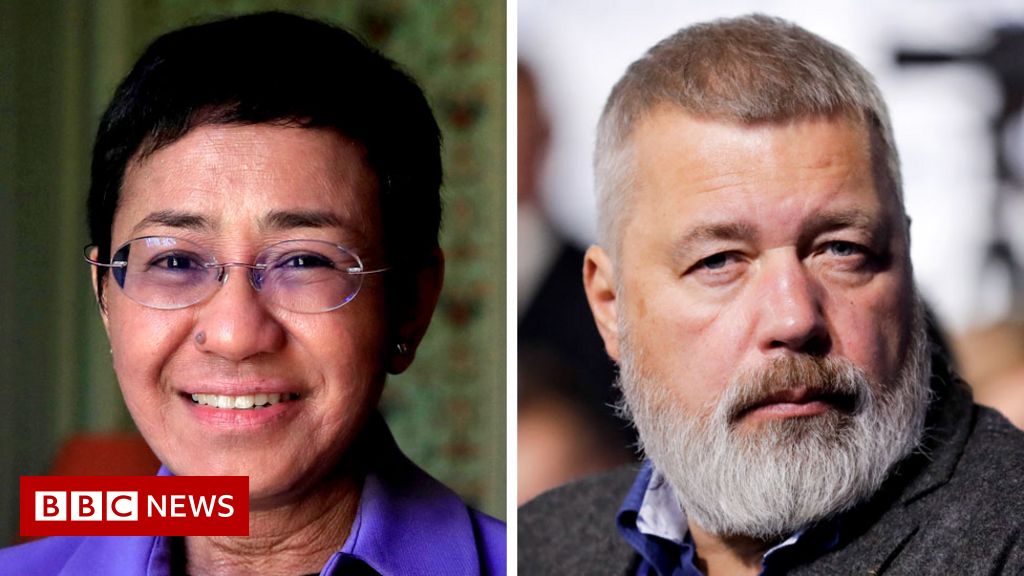Maria Ressa and Dmitry Muratov win Nobel Peace Prize

Ressa is the CEO of Rappler, a news outlet critical of Philippine President Rodrigo Duterte’s regime, while Muratov heads the independent Russian newspaper Novaya Gazeta. Both have faced legal and physical threats during their careers, as their respective governments cracked down on the rights of journalists.”Free, independent and fact-based journalism serves to protect against abuse of power, lies and war propaganda,” Berit Reiss-Andersen, chair of the Norwegian Nobel Committee, said as she announced the prize in Oslo on Friday.She said the pair are “representatives of all journalists who stand up for this ideal in a world in which democracy and freedom of the press face increasingly adverse conditions.” Reiss-Andersen added that the committee’s choice was intended to “underscore the importance of protecting and defending these fundamental rights.”Ressa, a former CNN bureau chief and TIME Person of the Year, has been engulfed in legal battles in recent years and says she has been targeted because of her news site’s critical reports on Duterte.Ressa added that while she was at CNN, she “had enough of a network to be able to fight back” against threats to freedom of expression. “I’m not fighting against the Duterte administration, I’m fighting for my rights. I’m still idealistic,” she said.Joel Simon, the executive director of the Committee to Protect Journalists, congratulated the pair on their victory, calling Ressa and Muratov “two fearless journalists and symbols of the struggle for press freedom.”It is the 102nd time the Nobel Peace Prize has been awarded. Previous winners include Nelson Mandela, Martin Luther King, Jr., Polish dissident Lech Walesa, the Soviet Union’s last leader Mikhail Gorbachev, and four US Presidents. Last year the UN’s World Food Programme claimed the prize. The prize has at times attracted controversy. In 2019, the award was given to Ethiopian Prime Minister Abiy Ahmed, who has since become an international pariah for his role in presiding over a protracted civil war in Tigray that, by many accounts, bears the hallmarks of genocide and has the potential to destabilize the wider Horn of Africa region.Reiss-Andersen was asked to comment on whether Ahmed has lived up to the committee’s expectations during Friday’s press conference, but avoided the question.


